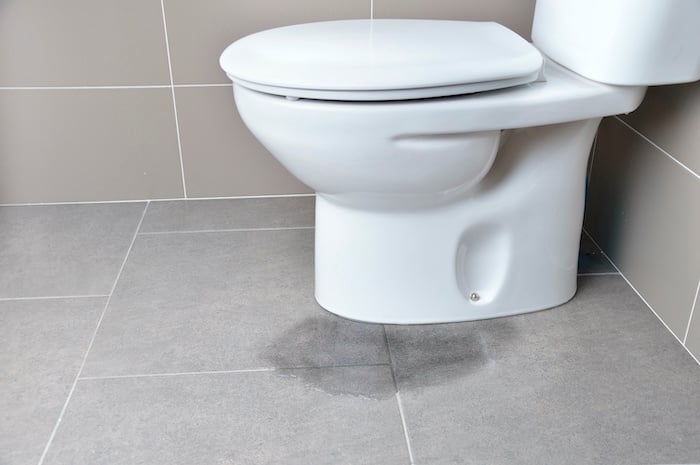Key 5 Reasons Behind Water Leaks
Key 5 Reasons Behind Water Leaks
Blog Article
In this article in the next paragraph you can get more high-quality details in relation to Common Causes of Water Leaks in the Home.

"Beware of little expenses. A small leak will certainly sink an excellent ship." - Benjamin Franklin.
He couldn't have been a lot more right due to the fact that water leakages in our houses cause a waste of sources, raising our water expenses. Although this boost may appear minimal initially, it can cause significant costs that can break your financial institution. Apart from an increase in costs, water leaks also create undesirable natural growth, structural damage, and also even electrical risks.
If you have a water leakage isn't constantly simple due to being incapable to see many of the pipework in your residence, figuring out. However, If you have had an increase in your water bills lately, saw water discolorations on ceilings and also wall surfaces, scented poor smell, and so on. You might want to think about asking for plumbing solutions to get it checked out.
There are numerous causes of water leaks, and also we have actually assembled the common factors listed below. Check to see if you have had associated problems in your house just recently.
Blocked drains pipes
Food fragments, dust, and grease can trigger blocked drains and also obstruct the passage of water in and out of your sink. Increased pressure within the gutters can cause an overflow and end up splitting or bursting pipes if undealt with. To prevent stopped up drains in your home, we recommend you to avoid putting particles down the tubes and routine cleaning of sinks.
High water pressure
You discovered your home water pressure is greater than common but then, why should you care? It's out of your control.
It would be best if you cared because your typical water pressure should be 60 Psi (per square inch) as well as although your house's plumbing system is designed to hold up against 80 Psi. A rise in water pressure can put a strain on your house pipelines and also result in cracks, or worse, burst pipelines. If you ever notice that your home water stress is higher than usual, get in touch with an expert about regulating it.
Corrosion
As your pipework grows older, it gets weaker as well as a lot more vulnerable to corrosion after the frequent passage of water with them, which can gnaw at pipes and also trigger cracks. A visible sign of corrosion in your house plumbing system is discoloration and also although this could be difficult to find as a result of a lot of pipelines hidden away. Once they are old to ensure an audio plumbing system, we suggest doing a constant examination every couple of years as well as alter pipelines
Compromised pipeline joints
Pipeline joints are the components of our plumbing system where the pipes link. It is essential to keep in mind that also though pipes are designed to hold up against stress and last for a while, they weren't made to last forever; consequently, they would certainly weaken over time. A common indication of damaged pipeline joints is extreme sound from faucets.
Broken seals
One more root cause of water leakages in homes is broken seals of residence appliances that utilize water, e.g., a dish washer. When such appliances are mounted, seals are installed around water connectors for simple flow of water with the device. For this reason, a busted seal can cause leakage of water when in use.
With little or no expertise of plumbing, understanding your home's plumbing system enough to take care of a few of these issues (without consequence) can be a headache. Contact plumbing professionals in Pittsburgh, Divine Superintendence, Rochester, and environ today, and they'll make those issues vanish.
He couldn't have been a lot more best because water leaks in our houses result in a waste of resources, increasing our water bills. If you have had a boost in your water expenses lately, discovered water discolorations on ceilings and wall surfaces, smelt lousy smell, etc. A rise in water stress can put a stress on your house pipelines and lead to cracks, or worse, burst pipes. One more cause of water leakages in residences is broken seals of home devices that use water, e.g., a dishwashing machine. When such home appliances are mounted, seals are set up around water adapters for very easy passage of water with the machine.
5 TIPS IN DETECTING A WATER LEAK IN YOUR HOUSE
Water leaks can be hard to find in your home, yet they can be so common. We rely on water every day in our home, which is why a leak can cause big problems. By detecting them early, you can save money and further damage, getting the problem fixed as soon as possible. Here are 5 tips to help you detect a water leak in your home, so you can contact a plumber straight away and get the issue sorted.
Check your water meter
Many people underestimate the value of the water meter in their home. It can be one of the best ways to tell if you have a leak early on, so you can get on top of it before issues start arising. Start by turning off all the water in your home: taps, washing machine, dishwasher, etc. Now take a look at the meter – if it’s still changing with everything turned off, it’s likely you have a fast-flowing leak that you need to get on top of straight away. If nothing changes, then leave your meter for an hour or two and come back to it. Did it change in this time? It’s likely you have a slower leak, which isn’t as urgent but still handy to get fixed so it doesn’t become a bigger problem.
Keep an eye on your bill
Another good way to detect a leak in your home is by keeping an eye on your water bill. It helps if you have a past bill from the same period of time. You can compare like for like and determine whether your water usage has increased significantly. If it has, there may be a leak in your system that you haven’t picked up before. A professional plumber can check through all of your pipes and determine where it is coming from.
Look for damage
If you have a leak inside your home, you will notice damage over time. Take a look at your showers and bathtubs and note whether any of the tiles surrounding the area seem to be discoloured or damaged in any way. There may be water stains, mould or peeling material that has resulted from a build up of moisture over time. Make sure you take a look under sinks at the back of cupboards that don’t get accessed regularly. This is where damage can go unnoticed and build up over periods of time.

As a serious reader about Where to Find Water Leaks, I imagined sharing that section was really useful. Do you know another individual who is in to the subject? Feel free to promote it. I cherish reading our article about Reasons for Water Heater Leaks.
Book Maintenance Report this page